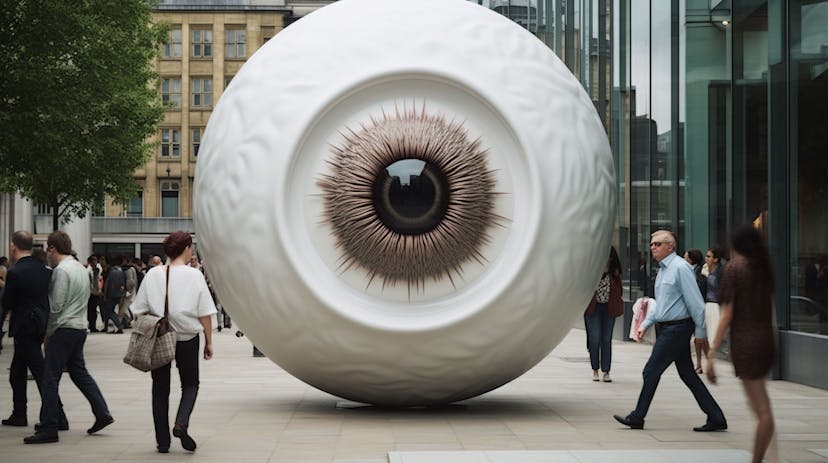
Cataract surgery is one of the most common and successful surgical procedures performed today, yet the prospect of undergoing eye surgery can still be daunting for many. Understandably, patients have a myriad of concerns and questions, ranging from the procedure itself to recovery and long-term outcomes. At my-iClinic, with over 100,000 successful cataract operations under our belt, we understand these anxieties well. Our team of experts is committed to providing comprehensive care and support, addressing every question to help alleviate any worries you might have. In this article, we will explore the 15 most popular questions asked about cataract surgery, offering insights and information to guide you through this important journey.
1. Is Cataract Surgery Safe?
Yes, cataract surgery is considered one of the safest and most effective surgical procedures. Advances in medical technology and surgical techniques have significantly increased the success rates and reduced the risks associated with the surgery. The procedure is typically performed on an outpatient basis, using local anaesthesia, which minimises the risks related to general anaesthesia. The vast majority of patients experience significant improvement in their vision with minimal discomfort. At my-iClinic, our highly experienced surgeons and state-of-the-art facilities further ensure the safety and success of each cataract surgery, providing our patients with peace of mind and exceptional care.
2. Can Cataract Surgery Be Covered by Insurance?
Yes, cataract surgery is often covered by insurance, including Bupa and many private health insurance plans. Coverage typically includes the cost of the surgical procedure, preoperative and postoperative care, and a standard intraocular lens (IOL). However, certain premium IOLs or additional services may incur extra costs. At my-iClinic, our knowledgeable staff can assist you in understanding your insurance benefits and help you navigate the coverage process, ensuring that you receive the highest quality care with minimal financial stress.
Here are five top insurance providers in the UK that typically cover cataract surgery:
- Bupa
- AXA Health
- Aviva
- VitalityHealth
- Simplyhealth
At my-iClinic, we work with these and other insurance providers to ensure our patients receive the necessary coverage for their cataract surgery. Our team is here to help you understand your insurance options and facilitate a smooth process for your treatment.
3. Can Cataract Surgery Be Redone?
Yes, cataract surgery can be redone, although this is relatively uncommon. In some cases, patients may develop a condition called posterior capsule opacification (PCO), where the lens capsule becomes cloudy after the initial surgery. This is sometimes referred to as a secondary cataract. PCO can be easily treated with a quick, painless laser procedure called YAG laser capsulotomy, rather than a repeat of the original cataract surgery. In rare cases where complications arise or if the initial surgery did not achieve the desired results, additional surgical intervention may be required. At my-iClinic, our experienced surgeons carefully monitor each patient’s progress to ensure optimal outcomes and are equipped to address any issues that may necessitate further treatment.
4. Can Cataract Surgery Cause or Fix Astigmatism?
Cataract surgery can actually correct astigmatism rather than cause it. During the procedure, the surgeon can use special techniques and advanced intraocular lenses (IOLs) designed to correct astigmatism. These toric IOLs help to reshape the cornea, providing clearer vision and reducing or even eliminating astigmatism. For patients who already have astigmatism, this is a significant benefit of cataract surgery, as it can improve both near and distant vision. At my-iClinic, we offer a range of premium IOL options and tailor each treatment plan to address the unique visual needs of our patients, ensuring the best possible outcomes.
5. Can Cataract Surgery Cause Dry Eyes?
Cataract surgery can sometimes lead to temporary dry eyes. The procedure involves making small incisions in the eye, which can disrupt the tear film and lead to dryness or irritation during the healing process. Most patients experience these symptoms for a short period after surgery, and they can be effectively managed with lubricating eye drops and other treatments. At my-iClinic, our surgeons provide detailed aftercare instructions and support to help minimise any discomfort and promote a smooth recovery. We closely monitor our patients' progress to ensure any issues, including dry eyes, are promptly addressed and resolved.

6. How Is Cataract Surgery Performed?
Cataract surgery is typically performed as an outpatient procedure and involves several key steps:
- Local anaesthesia is administered to numb the eye, and patients may receive a sedative to help them relax.
- A small incision is made in the cornea, the clear front part of the eye.
- Through this incision, the surgeon uses a tiny instrument to break up and remove the cloudy lens (cataract). This process, called phacoemulsification, uses ultrasound waves to emulsify the lens.
- After the cataract is removed, a clear artificial intraocular lens (IOL) is inserted into the eye. This lens is positioned in the same location as the natural lens.
- The small corneal incision is usually self-sealing and may not require stitches.
The entire procedure typically takes about 15 to 30 minutes. At my-iClinic, our experienced surgeons use the latest techniques and state-of-the-art equipment to ensure the procedure is performed with precision and care, providing our patients with the best possible outcomes.
7. Can Cataract Surgery Go Wrong and What Happens if It Does?
While cataract surgery is highly successful and complications are rare, there is always a small risk with any surgical procedure. Potential complications can include infection, bleeding, swelling, retinal detachment, or issues with the intraocular lens (IOL) positioning.
If complications do occur, they can often be managed effectively with prompt medical intervention. For instance:
- Infections are treated with antibiotics.
- Inflammation or swelling may require anti-inflammatory medications.
- Retinal detachment might need additional surgery.
- Dislocated IOLs can be repositioned or replaced.
The specific actions taken depend on the nature and severity of the issue. Infections may require antibiotic treatment, while inflammation can be managed with steroid eye drops. Serious complications, such as retinal detachment or significant bleeding, may necessitate additional surgery or interventions.
At my-iClinic, our highly skilled surgeons and dedicated medical team take every precaution to minimise risks and promptly address any complications that may arise. We provide thorough preoperative evaluations and postoperative care to ensure the best possible outcomes for our patients.
8. Which Cataract Surgery Is Best
The "best" cataract surgery approach depends on several factors, including the patient's specific eye condition, lifestyle, and preferences. Here are the main types of cataract surgery:
Standard Phacoemulsification
This is the most common and widely performed type of cataract surgery. It involves using ultrasound energy to break up the cloudy lens and remove it through a small incision. A standard monofocal intraocular lens (IOL) is typically implanted to restore vision at one distance (usually distance vision), with glasses needed for near tasks.
Laser-Assisted Cataract Surgery
This technique uses a laser to assist in certain steps of the surgery, such as creating incisions and softening the cataract for easier removal. It may offer increased precision and potentially faster recovery times compared to traditional phacoemulsification.
Premium Lens Implants
These include multifocal or accommodating IOLs, which can correct vision at multiple distances (near, intermediate, and distance), reducing the need for glasses after surgery. Toric IOLs correct astigmatism as well.
The best choice of cataract surgery varies from person to person. Factors such as lifestyle, visual needs, existing eye conditions (like astigmatism), and budget all play a role. At my-iClinic, we offer a personalised approach, discussing options with each patient to determine the most suitable surgery and lens choice for their individual needs and goals.
9. Which Cataract Surgery Is Best for Diabetics?
For diabetics requiring cataract surgery, special considerations may be necessary due to the potential complications associated with diabetes, such as diabetic retinopathy and slower wound healing. Here are considerations for cataract surgery in diabetics:
Preoperative Evaluation
Diabetic patients should undergo a thorough eye examination to assess the extent of diabetic eye disease, such as diabetic retinopathy or macular edema, which may impact surgical outcomes.
Type of Surgery
Phacoemulsification (standard or laser-assisted) is generally suitable for most diabetic patients, as it is minimally invasive and allows for quicker recovery compared to traditional methods.
Intraocular Lens (IOL) Choice
Diabetics may benefit from premium IOLs, such as toric lenses to correct astigmatism, or multifocal lenses to reduce dependence on glasses post-surgery. However, the presence of diabetic eye complications may limit the use of certain premium IOLs.
Postoperative Care
Close monitoring and management of blood sugar levels before and after surgery are crucial to promote healing and reduce the risk of complications.
At my-iClinic, our experienced ophthalmologists consider each diabetic patient's unique medical history and eye condition when recommending the most appropriate cataract surgery and IOL option. We prioritise safety, efficacy, and personalised care to achieve the best possible visual outcomes for our diabetic patients undergoing cataract surgery.
10. Who Performs Cataract Surgery?
Cataract surgery is performed by highly trained ophthalmologists (eye surgeons) who specialise in the diagnosis and treatment of eye conditions, including cataracts. These specialists undergo extensive medical education and surgical training specifically focused on procedures of the eye.
At my-iClinic, we use advanced techniques and state-of-the-art equipment to ensure safe and effective treatment for our patients. Before undergoing cataract surgery, patients typically meet with their ophthalmologist for a comprehensive eye examination and consultation to discuss treatment options and address any questions or concerns.

11. Will Cataract Surgery Get Rid of Floaters?
Floaters are tiny clumps of gel or cells inside the vitreous, the gel-like substance that fills the inside of the eye. They cast shadows on the retina, causing spots or cobweb-like shapes in your vision.
Floaters are not directly related to cataracts, and cataract surgery typically does not eliminate floaters. However, some patients may notice changes in their perception of floaters after cataract surgery due to improved clarity and brightness of vision.
If floaters significantly affect your vision or quality of life, it's important to discuss this with your ophthalmologist during your consultation. They can evaluate the severity of the floaters and recommend appropriate treatment options, which may include observation, vitrectomy (a surgical procedure to remove floaters), or other management strategies.
At my-iClinic, we can provide comprehensive evaluations and personalised care to address all aspects of your visual health, ensuring you receive the most appropriate treatment for your specific needs.
12. Can I Drive or Fly After Cataract Surgery?
Driving and flying after cataract surgery depends on individual circumstances and the advice of your ophthalmologist. Here are some general guidelines:
Driving
In most cases, you should not drive immediately after cataract surgery, especially on the day of the procedure. Your vision may be temporarily blurry or distorted due to the effects of surgery and medications. It's important to wait until your vision has stabilised and your ophthalmologist confirms that it is safe for you to resume driving. This typically occurs after your follow-up visit, usually within a few days to a week after surgery.
Flying
Air travel after cataract surgery is generally safe once you have recovered sufficiently. Changes in cabin pressure during flights do not typically affect the eye after cataract surgery. However, it's important to follow your ophthalmologist's advice regarding postoperative care and any restrictions on activities, including air travel.
Before making any travel plans, discuss your specific situation with your ophthalmologist at my-iClinic. We can provide recommendations based on your recovery progress and any unique aspects of your eye health. Taking these precautions ensures your safety and comfort during the healing process after cataract surgery.
13. Can You Have Cataract Surgery Without a Lens Implant?
In rare cases, such as when there are complications during surgery or specific medical reasons, it may be necessary to delay or omit the implantation of an artificial intraocular lens (IOL). This situation is usually temporary, and the surgeon will discuss alternative options with the patient. However, it's important to note that not implanting an IOL can lead to significant visual impairment, such as extreme nearsightedness (high myopia) or farsightedness (high hyperopia), which would require corrective lenses (glasses or contact lenses) to achieve functional vision.
At my-iClinic, our surgeons prioritise the best possible outcomes for our patients undergoing cataract surgery.
14. Can I Have Cataract Surgery If I Have Glaucoma?
Yes, it is possible to have cataract surgery if you have glaucoma. However, it is important to manage both conditions carefully because they can affect each other. Here are some considerations:
Preoperative Evaluation
Before cataract surgery, your ophthalmologist will assess your glaucoma status. This may include checking your intraocular pressure (IOP) and evaluating the health of your optic nerve.
Surgical Technique
Special precautions may be taken during cataract surgery to minimise the risk of increasing IOP. For example, some surgeons may adjust the type of anaesthesia or use medications to control IOP during surgery.
Postoperative Management
After cataract surgery, your ophthalmologist will monitor your eye closely for any changes in IOP. In some cases, cataract surgery can lead to temporary fluctuations in IOP, so regular follow-up visits are essential.
Combined Procedures
If you have both cataracts and glaucoma, your surgeon may consider performing a combined procedure to address both conditions simultaneously. This approach can reduce the need for multiple surgeries and optimize your visual outcomes.
At my-iClinic, our experienced ophthalmologists have expertise in managing patients with both cataracts and glaucoma. We provide treatment plans to ensure the safety and effectiveness of cataract surgery while managing any underlying eye conditions such as glaucoma. Regular communication and coordination between your ophthalmologist and glaucoma specialist, if needed, are crucial for optimising your eye health and visual outcomes.
15. Are There Any Cataract Surgery Side Effects?
Cataract surgery is generally considered safe and complications are rare, but like any surgical procedure, it does carry potential side effects. Some possible side effects include:
Temporary Blurred Vision
It's normal to experience some blurriness immediately after surgery as your eye heals.
Inflammation
Mild inflammation in the eye may occur after surgery, which can usually be managed with prescribed eye drops.
Infection
Although rare, infection can occur following surgery. Symptoms include increased pain, redness, or discharge from the eye.
Swelling or Discomfort
Some patients may experience mild discomfort or irritation in the eye, which typically improves as the eye heals.
Secondary Cataract (PCO)
In some cases, a secondary membrane may form behind the new lens implant, causing blurry vision. This can be easily treated with a quick, painless laser procedure called YAG laser capsulotomy.
Glare or Halos
Some patients may notice glare or halos around lights, especially at night, which usually diminishes over time.
Droopy Eyelid (Ptosis)
Rarely, the muscle that lifts the eyelid can become temporarily weak after surgery, causing the eyelid to droop slightly.
It's important to discuss any concerns about potential side effects with your ophthalmologist before undergoing cataract surgery. At my-iClinic, our team prioritises patient safety and satisfaction, providing thorough preoperative evaluations and personalised care to minimise risks and optimise visual outcomes after cataract surgery.

Why Should You Invest In Private Cataract Surgery?
Investing in private cataract surgery offers several compelling advantages that prioritise your health, comfort, and visual outcomes. Unlike NHS wait times, which can vary, opting for private surgery often means quicker access to treatment, reducing the impact of cataracts on your daily life sooner. Private facilities typically offer advanced technology and a wider range of premium intraocular lenses (IOLs), allowing for personalised treatment plans tailored to your specific needs and lifestyle. Moreover, private care ensures dedicated attention from experienced specialists throughout your entire journey, from initial consultation to postoperative care, fostering peace of mind and confidence in your recovery. Take control of your vision health today by choosing private cataract surgery at my-iClinic. Contact us to schedule your consultation and discover how we can help you regain clear vision and quality of life without delay.
Find out more by Speaking to our team









